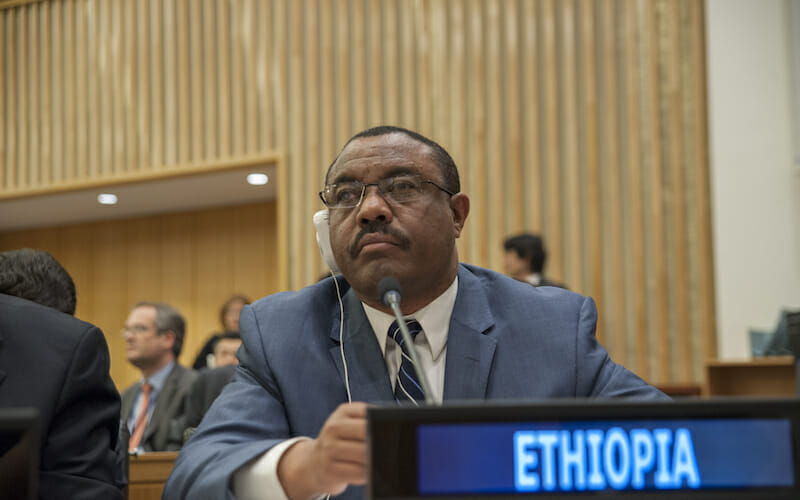World News /03 Mar 2018
Facing the abyss of interethnic civil war, Ethiopia today is on the brink of state failure. Ethiopian Prime Minister Hailemariam Desalegn shocked the country with his abrupt resignation as head of the ruling Ethiopian People’s Revolutionary Democratic Front (EPRDF) coalition last month, designed to subdue simmering unrest.
While the government scrambles to figure out who will succeed him, this East African country has levied a state of emergency for the next six months, amid a wave of anti-government protests that have rocked it on and off for the past three years. This is the second time in just two years that Ethiopia has declared a state of emergency, which prohibits protests and restricts publications that could be deemed to incite violence.
Ethiopia’s economic growth has been largely due to the government’s laser-like attention on sectors such as energy, infrastructure, and manufacturing, striving to become a regional manufacturing base, unlike other fellow resource dependent economies such as Nigeria. While over 70% of Ethiopians remain employed in the agricultural sector, services have eclipsed agriculture as the chief source of GDP. The 2014 crash in commodity prices, for example, had a trivial impact on Ethiopia’s growth path. The IMF predicts that, from 2000 to 2016, Ethiopia was the third-fastest growing country (of 10 million or more people) in the world, as measured by GDP per capita. Since 2005, this African powerhouse has consistently registered double digit GDP growth, boasting an annual growth of 10.5%.
However, while its far-reaching economic reforms aimed to transform this often famine-stricken nation into a “developmental state” have clearly materialized, the price has been high for Ethiopians, forced to live under EPRDF’s stern grip on power. A lack of effective checks and balances has enabled a crackdown on free speech and civil society, all under the mask of “national security.”
The paradox of this Machiavellian compromise has not been lost on bystanders that expected a better future in exchange for their tactic obedience. Since 2015, the Oromo have been orchestrating mass protests denouncing, among other things, what they claim are land grabs from farmers for an authoritarian government’s planned factories. In the years of turmoil, hundreds of Oromo have been killed, factories have been burned, and many hecklers have been incarcerated.
With an invigorated opposition and schisms within the ruling party, Ethiopia’s ability to maintain consistent economic growth will be linked to its ability to integrate forsaken communities who need to be convinced that they too have a stake in Ethiopia’s new future.

 Cia Pak
Cia Pak



